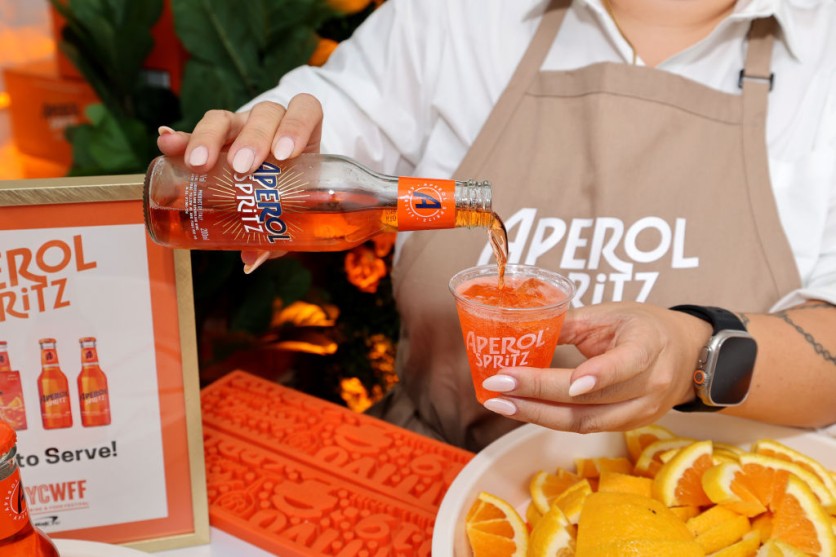Whether Aperol Spritz can increase the risk of cancer or not has been a hot topic online. Some netizens claim that Aperol, a favorite summer drink, may contain harmful and carcinogenic colorings that cause cancer. But is this claim true?
This dispute centers on Campari Group's Aperol. The 1919 Padua International Fair introduced Luigi and Silvio Barbieri's fragrant liqueur, Aperol Spritz, which became popular in the 1950s. This drink has Aperol, prosecco, and mineral water.
The Aperol website says its recipe, which includes bitter and sweet oranges, rhubarb, and gentian, has not been altered. The liqueur's orange-red color comes from its Petroleum-based colorings E110 (yellow-orange S) and E124 (cochineal red A).
Berlin's consumer advisory center calls these "azo dyes" contentious since they can cause skin reddening and asthma in vulnerable people. Despite these concerns, Aperol's modest levels of food coloring are harmless, per SCMP.
The EFSA sets daily ingestion limits for E110 The limit for E110 is 4 mg per kilogram for body weight, while the limit for E124 is 0.7 mg. Aperol allows both colorings up to 200 mg per liter. Aperol. A 70-kg individual can drink 490 ml of Aperol daily, or eight glasses of Aperol Spritz, without exceeding the suggested limits.
E110 and E124 raised cancer risk in mice at high doses over time; however, the data are uncertain. Researchers have not found a conclusive relationship in humans. The US bans E124 and uses "Red 40," a synthetic hue.
Does Aperol Spirtz Increase the Risk of Cancer?
Alcohol's carcinogenicity is another risk as its consumption increases the risk of esophageal and liver cancer, according to the German Cancer Research Centre. Globally, alcohol is associated with 4% of cancer cases, strokes, heart failure, alcohol dependency, and mental health issues.
The report concluded that Aperol Spritz's alcohol concentration increases cancer risk, while its colorings are harmless within limits.
Moreover, its bitter taste aids digestion and bile production. Aperol Spritz contains antioxidant herbs such as gentian, rhubarb, and cinchona, but the amounts are likely too small to be effective.

Alcohol-Cancer Link
According to the National Cancer Institute, researchers have extensively examined alcohol and cancer risk. No alcohol link or conflicting data exists for ovarian, prostate, stomach, uterine, and bladder cancer. However, alcohol use is increasingly linked to melanoma, prostate, and pancreatic cancers.
The risks associated with alcohol intake may outweigh the benefits. An analysis of over 1,000 alcohol studies and other data sources, including death and disability statistics from 195 nations between 1990 and 2016, found that zero drinks per day minimize health hazards. This research did not contain renal or non-Hodgkin lymphoma data.
Alcohol may also cause secondary primary cancers. A review of 19 studies found that people who had cancer in the upper aerodigestive tract (UADT)-which includes the mouth, throat, larynx, and esophagus-had a 1.09-fold higher risk of getting a second primary UADT cancer for every 10 grams of alcohol they drank every day before their first diagnosis. Alcohol intake may also increase the risk of breast cancer and other second-line primary cancers.
Read also: Study Reveals Two-Year Adherence Rates for Ozempic: What's With Drake's BBL Drizzy Controversy?

ⓒ 2025 TECHTIMES.com All rights reserved. Do not reproduce without permission.




